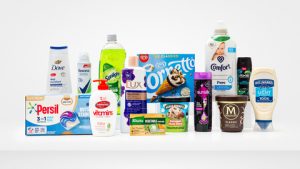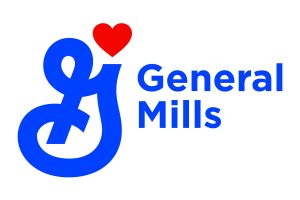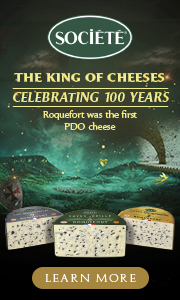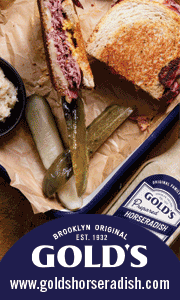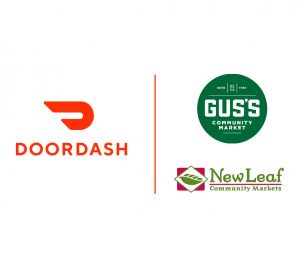 DoorDash announced the availability of Gus’s Community Market (a family-owned San Francisco staple) and New Leaf Community Markets (a Santa Cruz-based natural and organic grocer) for on-demand delivery on the DoorDash platform.
DoorDash announced the availability of Gus’s Community Market (a family-owned San Francisco staple) and New Leaf Community Markets (a Santa Cruz-based natural and organic grocer) for on-demand delivery on the DoorDash platform.With the addition of these iconic California grocers, DoorDash continues to expand its grocery delivery options, now offering over 100,000 non-restaurant retailers on the platform and unlocking even more locally-sourced and quality selections for consumers.
What makes these partnerships unique:
-
Both are beloved local merchants in their communities.
-
For over four decades, Gus’s Community Market has been serving San Francisco with four locations, providing fresh groceries, great selection, and neighborly service.
-
New Leaf – the first B Corp Certified grocer in California – provides all-natural grocery items, high-quality body care, and wellness products from six locations along the Central Coast.
This announcement continues DoorDash’s swift acceleration in the grocery category, following recent news of multiple new partners – from the largest national grocery partners to beloved local favorites and specialty shops – as well as the addition of SNAP/EBT as a payment method on the platform.
Consumers can order delivery from these grocers on the DoorDash app or website. To celebrate the announcement, shoppers can receive:
-
20 percent off all eligible Gus’s Community Market orders $45+ (up to $15) with promo code GUSLAUNCH20.
-
Members of DashPass, DoorDash’s membership program that offers members $0 delivery fees from thousands of restaurants, grocery, and convenience stores nationwide, will receive 30 percent off all eligible orders $60+ (up to $25) with promo code GUSLAUNCH30.
In addition, starting Dec. 22 to Jan. 4, consumers can enjoy the following deals from New Leaf:
-
Free delivery from all New Leaf Community Market locations.
-
DashPass members will receive 20 percent off $50 (up to $15) off all eligible orders with promo code NL20.
You can find more information about Gus’s and New Leaf on DoorDash here.
For more news of interest to the food and beverage industry, subscribe to Gourmet News.





